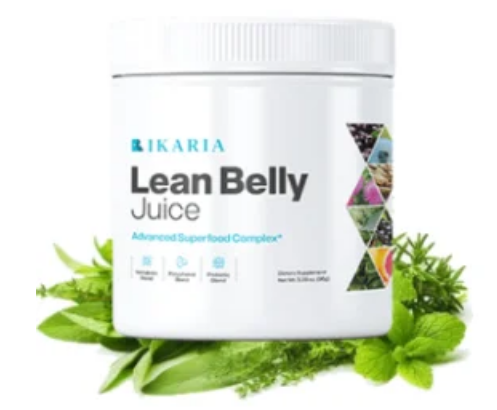Balancing Macros - How To Calculate Protein Needs On A Plant-Based Diet

Strong 8k brings an ultra-HD IPTV experience to your living room and your pocket.
Overwhelmed with the idea of balancing macros on a plant-based diet? Understanding how to calculate your protein needs is crucial for maintaining a healthy and well-rounded diet. Whether you're a seasoned vegan or just starting out on a plant-based lifestyle, this guide will provide you with the knowledge and tools to ensure you're meeting your protein requirements effectively. By following these step-by-step instructions, you can confidently navigate the world of plant-based protein and optimize your nutrition for overall wellness.
Key Takeaways:
- Determine protein needs: Calculate protein needs based on individual factors such as weight, activity level, and goals to ensure adequate intake.
- Plant-based protein sources: Include a variety of plant-based protein sources such as legumes, nuts, seeds, tofu, tempeh, and whole grains to meet daily protein requirements.
- Monitor intake: Keep track of protein consumption to ensure meeting daily requirements and consider consulting a registered dietitian for personalized guidance.
How to Calculate Your Protein Needs
Identifying Your Daily Caloric Intake
You need to first establish your daily caloric intake to accurately determine your protein needs. This can be done by calculating your basal metabolic rate (BMR) and factoring in your activity level. Websites and apps can help you with this calculation, or you can consult with a dietitian for a more personalized approach.
Determining the Right Protein Ratio
One crucial step in calculating your protein needs is determining the right protein ratio for your diet. For plant-based diets, a common recommendation is to consume around 0.8 to 1 gram of protein per kilogram of body weight. However, factors like age, activity level, and muscle mass should also be considered when determining your protein ratio.
Daily monitoring of your protein intake can help you adjust your diet as needed to meet your protein requirements. Keep in mind that individual protein needs may vary, so it's important to listen to your body and make adjustments accordingly. Be sure to include a variety of plant-based protein sources in your diet to ensure you're meeting all your vital amino acid needs.
Plant-Based Protein Sources
Top Protein-Rich Plant Foods
You might be surprised to learn that there are plenty of plant-based options that are rich in protein. Legumes like lentils, chickpeas, and black beans are excellent sources of protein, as are tofu, tempeh, and edamame. Grains like quinoa and amaranth also pack a protein punch, while nuts and seeds such as almonds, chia seeds, and hemp seeds can be great additions to your diet.
How to Incorporate Various Plant Proteins into Your Diet
Sources of plant-based protein can easily be incorporated into your meals. For example, you can add chickpeas to salads, use tofu in stir-fries, or blend hemp seeds into your smoothies. Mixing and matching different plant proteins ensures that you are getting a variety of amino acids, which are the building blocks of protein. Don't be afraid to experiment with different plant-based protein sources to keep your meals exciting and nutritious.
Protein needs on a plant-based diet can easily be met by incorporating a variety of plant protein sources into your meals. By including legumes, tofu, tempeh, nuts, seeds, and whole grains in your diet, you can ensure that you are getting all the necessary amino acids your body needs to thrive. Experiment with different recipes and combinations to find what works best for you while meeting your protein needs. Remember that a well-rounded plant-based diet can provide all the protein your body requires.
Tips for Balancing Macros on a Plant-Based Diet
Unlike traditional diets that focus on animal products for protein, balancing macros on a plant-based diet requires attention to detail to ensure adequate intake of all necessary nutrients. Here are some tips to help you achieve the right balance:
- Include a variety of plant-based protein sources such as legumes, tofu, tempeh, seitan, nuts, and seeds to ensure you are getting all necessary amino acids.
- Incorporate whole grains like quinoa, brown rice, and oats for complex carbohydrates to provide sustained energy throughout the day.
- Don't forget about healthy fats from sources like avocados, nuts, seeds, and olive oil to support brain function and hormone production.
The key to balancing macros on a plant-based diet is to focus on whole, nutrient-dense foods that provide a wide range of necessary nutrients to support overall health and well-being.
Meal Planning Strategies
Any successful meal planning strategy for a plant-based diet should focus on including a variety of colors, textures, and flavors to ensure a well-rounded and satisfying meal. Consider batch cooking grains, beans, and vegetables to have on hand for quick and easy meal assembly during the week.
Adjusting Macros Based on Activity Levels
For optimal performance and recovery, individuals with higher activity levels may need to adjust their macronutrient intake to support their energy needs. Consider increasing your carbohydrate intake to fuel workouts and protein intake to support muscle repair and growth.
Tips for adjusting macros based on activity levels include monitoring your energy levels, experiment with different ratios of macronutrients, and listen to your body's hunger and fullness cues to determine the appropriate balance for your needs.
Factors influencing Protein Needs
Now, when calculating your protein needs on a plant-based diet, there are several factors to consider to ensure you are getting adequate protein for your body's requirements. These factors include age, gender, lifestyle, special circumstances such as pregnancy, weight training, and health conditions. Knowing how these factors affect your protein needs will help you tailor your plant-based diet accordingly.
Age, Gender, and Lifestyle Considerations
Assuming you are an adult with a moderately active lifestyle, the recommended daily intake of protein may vary depending on your gender. Generally, men have higher protein requirements than women due to differences in muscle mass and metabolism. As you age, protein needs may increase to support muscle maintenance and overall health. Lifestyle factors such as level of physical activity and whether you are pregnant or breastfeeding can also impact your protein needs.
Special Circumstances: Pregnancy, Weight Training, and Health Conditions
Assuming you are pregnant, engaging in weight training, or managing certain health conditions, your protein needs may be higher than the average person. For instance, during pregnancy, protein is crucial for fetal growth and development. Weight training puts additional stress on muscles, requiring more protein for repair and growth. Health conditions like kidney disease or diabetes may also warrant adjustments in protein intake to support specific dietary needs.
Summing up
Upon reflecting on how to calculate protein needs on a plant-based diet, it is vital to understand the importance of balancing macros to meet daily requirements. By focusing on protein-rich plant foods, tracking intake, and considering individual factors such as activity level and goals, one can ensure adequate protein consumption. Maintaining a well-balanced diet and being mindful of protein sources allows individuals to thrive on a plant-based lifestyle while meeting their nutritional needs.
FAQ
Q: Why is calculating protein needs important on a plant-based diet?
A: Calculating protein needs on a plant-based diet is important to ensure you are consuming enough protein to support muscle growth, repair, and overall health. Protein is made up of amino acids, which are the building blocks of life and vital for numerous bodily functions.
Q: How can I calculate my protein needs on a plant-based diet?
A: To calculate your protein needs on a plant-based diet, you can use a simple formula based on your body weight. The general recommendation is to consume between 0.8-1.2 grams of protein per kilogram of body weight. For example, if you weigh 70kg, you would aim to consume between 56-84 grams of protein per day.
Q: What are some good sources of plant-based protein?
A: There are plenty of plant-based protein sources to choose from, including legumes (beans, lentils, chickpeas), tofu, tempeh, edamame, quinoa, nuts and seeds, seitan, and plant-based protein powders. By incorporating a variety of these sources into your diet, you can easily meet your protein needs on a plant-based diet.
Note: IndiBlogHub features both user-submitted and editorial content. We do not verify third-party contributions. Read our Disclaimer and Privacy Policyfor details.







